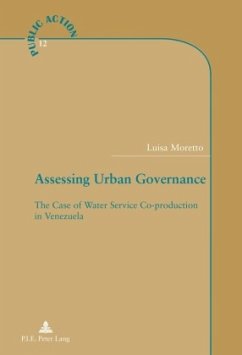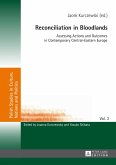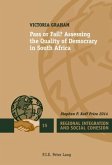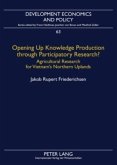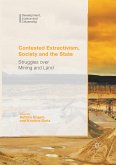When examining the relationship between urban governance and improved service provision in the Global South, there is frequently a gap between the rhetoric and the reality. Informal, practice-based local governance processes that aim to produce better urban services often diverge from official governance prescriptions and mechanisms for service delivery within the institutional sphere. This book explores the complex area of urban governance assessment, focusing on the issue of sustainable water supplies for the urban poor.
Adapting the UN-Habitat Urban Governance Index, the author explores the dual nature of urban governance, analyzing its formal dimension at the municipal level but also taking account of informal and locally specific governance arrangements aimed at improving access to basic services. Water service co-production strategies involving both public institutions and organized groups of citizens in Venezuela provide an excellent case study of this phenomenon. The book illustrates the limitations of official governance assessment tools in appreciating the extent and vibrancy of local practices and agreements, as well as investigating the discrepancies between normative prescriptions and governance arrangements on the ground.
Adapting the UN-Habitat Urban Governance Index, the author explores the dual nature of urban governance, analyzing its formal dimension at the municipal level but also taking account of informal and locally specific governance arrangements aimed at improving access to basic services. Water service co-production strategies involving both public institutions and organized groups of citizens in Venezuela provide an excellent case study of this phenomenon. The book illustrates the limitations of official governance assessment tools in appreciating the extent and vibrancy of local practices and agreements, as well as investigating the discrepancies between normative prescriptions and governance arrangements on the ground.

